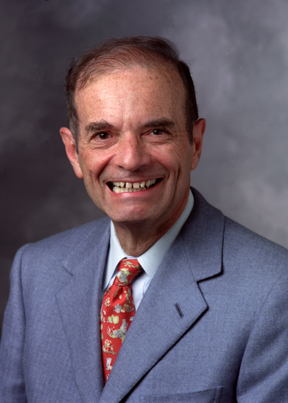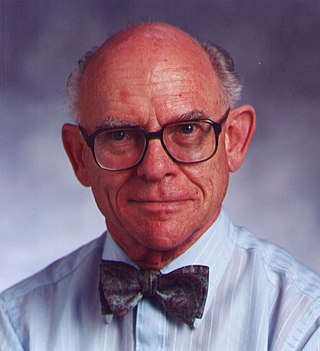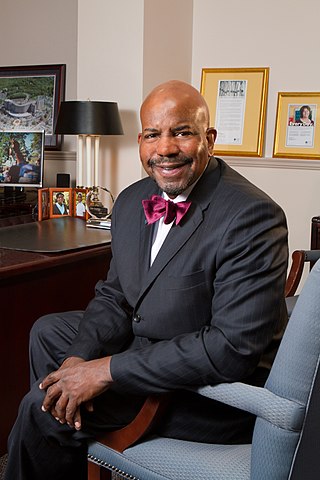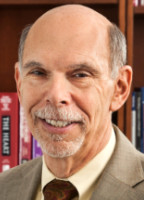Related Research Articles

Harald Ulrik Sverdrup was a Norwegian oceanographer and meteorologist. He served as director of the Scripps Institution of Oceanography and the Norwegian Polar Institute.

A doctorate or doctoral degree is a postgraduate academic degree awarded by universities and some other educational institutions, derived from the ancient formalism licentia docendi.

Scripps Research, previously known as The Scripps Research Institute (TSRI), is a nonprofit American medical research facility that focuses on research and education in the biomedical sciences. Headquartered in San Diego, California, the institute has over 170 laboratories employing 2,100 scientists, technicians, graduate students, and administrative and other staff.
The Doctorate of Medicine and of Philosophy (MD–PhD) is a dual doctoral degree for physician–scientists, combining the professional training of the Doctor of Medicine degree with the research expertise of the Doctor of Philosophy degree; the Ph.D. is the most advanced credential in the United States. Other dual degree programs exist, such as the joint MD–JD degree; both the JD professional degree and the MD are not universally recognized internationally, however. The National Institutes of Health currently provides 50 medical schools with Medical Scientist Training Program grants that support the training of students in MD–PhD programs at these institutions through tuition and stipend allowances. These programs are often competitive, with some admitting as few as two students per academic year. The MCAT score and GPA of MD–PhD matriculants are often higher than MD only matriculants.

Chi-Huey Wong is a Taiwanese-American biochemist. He is currently the Scripps Family Chair Professor at the Scripps Research Institute, California in the department of chemistry. He is a member of the United States National Academy of Sciences, as awarded the 2014 Wolf Prize in Chemistry and 2015 RSC Robert Robinson Award. Wong is also the holder of more than 100 patents and publisher of 700 more scholarly academic research papers under his name.

Lubert Stryer was the Emeritus Mrs. George A. Winzer Professor of Cell Biology, at Stanford University School of Medicine. His research over more than four decades has been centered on the interplay of light and life. In 2007 he received the National Medal of Science from President Bush at a ceremony at the White House for elucidating the biochemical basis of signal amplification in vision, pioneering the development of high density microarrays for genetic analysis, and authoring the standard undergraduate biochemistry textbook, Biochemistry. It is now in its tenth edition and also edited by Jeremy Berg, Justin Hines, John L. Tymoczko and Gregory J. Gatto, Jr.
Alexander Rich was an American biologist and biophysicist. He was the William Thompson Sedgwick Professor of Biophysics at MIT and Harvard Medical School. Rich earned an A.B. and an M.D. from Harvard University. He was a post-doc of Linus Pauling. During this time he was a member of the RNA Tie Club, a social and discussion group which attacked the question of how DNA encodes proteins. He has over 600 publications to his name.

Frank Albert Cotton FRS was an American chemist. He was the W.T. Doherty-Welch Foundation Chair and Distinguished Professor of Chemistry at Texas A&M University. He authored over 1600 scientific articles. Cotton was recognized for his research on the chemistry of the transition metals.
Gary King is an American political scientist and quantitative methodologist. He is the Albert J. Weatherhead III University Professor and Director for the Institute for Quantitative Social Science at Harvard University. King and his research group develop and apply empirical methods in many areas of social science research, focusing on innovations that span the range from statistical theory to practical application.
Stephen Gould Emerson is an American academic who was the 13th president of Haverford College from July 1, 2007, to August 10, 2011. In February 2012, he was appointed Director of the Herbert Irving Comprehensive Cancer Center at NewYork-Presbyterian Hospital/Columbia University Medical Center, and he will also hold the Clyde ’56 and Helen Wu Professorship in Immunology at the Columbia University Vagelos College of Physicians and Surgeons.
Charles Alderson Janeway, Jr. (1943–2003) was a noted immunologist who helped create the modern field of innate immunity. A member of the National Academy of Sciences, he held a faculty position at Yale University's Medical School and was an Howard Hughes Medical Institute Investigator.
CHI-California Healthcare Institute is a private, non-profit public policy research and advocacy organization, representing more than 250 universities, academic research centers, biotechnology, and medical device companies. Founded in 1993, and based in La Jolla, California, CHI has offices in Washington, D.C., and Sacramento, California. CHI publishes an annual California Biomedical Industry report, providing data on the scope and scale of academic and commercial life sciences research and development within the state. In 2008, the industry employed more than 270,000 Californians and produced revenues in excess of $75 billion.

Cato T. Laurencin FREng SLMH is an American engineer, physician, scientist, innovator and a University Professor of the University of Connecticut.

Eric Jeffrey Topol is an American cardiologist, scientist, and author. He is the founder and director of the Scripps Research Translational Institute, a professor of Molecular Medicine and Executive Vice-President at Scripps Research Institute, and a senior consultant at the Division of Cardiovascular Diseases at Scripps Clinic in La Jolla, California. He has published three bestseller books on the future of medicine: The Creative Destruction of Medicine (2010), The Patient Will See You Now (2015), and Deep Medicine: How Artificial Intelligence Can Make Healthcare Human Again (2019). He was commissioned by the UK from 2018–2019 to lead planning for the National Health Service's future workforce, integrating genomics, digital medicine, and artificial intelligence.

Kenneth L. Davis is the executive vice chairperson of the board of trustees at the Mount Sinai Health System in New York City, and an American author and medical researcher who developed the Alzheimer's Disease Assessment Scale, the most widely used tool to test the efficacy of treatments for Alzheimer's disease designed specifically to evaluate the severity of cognitive and noncognitive behavioral dysfunctions characteristic to persons with Alzheimer's disease. His research led to four of the first five FDA-approved drugs for Alzheimer's.
Brian Patrick Monahan is the Attending Physician of the United States Congress and the United States Supreme Court and holds the rank of rear admiral in the United States Navy. Monahan was nominated to the position and rank by United States President Barack Obama in January 2009. He previously served as the director of hematology and medical oncology at the National Naval Medical Center. He is a Master of The American College of Physicians and a Member of the Academy of Medicine.
Erminio "Mimo" Costa was an Italian-American neuroscientist. His research interests covered brain serotonergic activity in health and disease, benzodiazepine-GABA interactions, benzodiazepine action at GABAA receptors, neurophysiological role of neurosteroids, and GABAergic dysfunction and changes in the expression of reelin and GAD67 in schizophrenia. He published more than 1,000 articles. The June 2011 issue of the journal Neuropharmacology was dedicated to him.

George Quentin Daley is the Dean of the Faculty of Medicine, Caroline Shields Walker Professor of Medicine, and Professor of Biological Chemistry and Molecular Pharmacology at Harvard Medical School. He was formerly the Robert A. Stranahan Professor of Pediatrics at Harvard Medical School, Director of the Stem Cell Transplantation Program at Boston Children's Hospital, and an investigator of the Howard Hughes Medical Institute, Associate Director of Children's Stem Cell Program, a member of the Executive Committee of the Harvard Stem Cell Institute. He is a past president of the International Society for Stem Cell Research (2007–2008).
Michael J. Kuhar, is an American neuroscientist, author, and Candler Professor of Neuropharmacology at The Emory National Primate Research Center of Emory University. He is a Georgia Research Alliance eminent scholar, and a senior fellow in the Center for Ethics at Emory. He was previously a professor at Johns Hopkins University School of Medicine and branchchief at the National Institute on Drug Abuse.

Judith P. Klinman is an American chemist, biochemist, and molecular biologist known for her work on enzyme catalysis. She became the first female professor in the physical sciences at the University of California, Berkeley in 1978, where she is now Professor of the Graduate School and Chancellor's Professor. In 2012, she was awarded the National Medal of Science by President Barack Obama. She is a member of the National Academy of Sciences, American Academy of Arts and Sciences, American Association for the Advancement of Science, and the American Philosophical Society.
References
- ↑ "Floyd E. Bloom, M.D.: Council Member". The President's Council on Bioethics. Archived from the original on July 11, 2007. Retrieved 2008-01-20.
- 1 2 "Faculty: Floyd Bloom". The Scripps Research Institute. Archived from the original on 2010-05-28. Retrieved 2008-01-20.
- ↑ Dreifus, Claudia (2003-05-06). "A conversation with: Floyd Bloom; A Zealous Quest for Chemicals to Heal Ailing Brains". The New York Times . Retrieved 2008-01-20.
- ↑ "Board of Advisors: Floyd E. Bloom, M.D." Center for Ethics in Science & Technology. Archived from the original on 2008-06-01. Retrieved 2008-01-20.
- ↑ "Archived copy" (PDF). Archived from the original (PDF) on 2018-06-07. Retrieved 2017-09-25.
{{cite web}}: CS1 maint: archived copy as title (link) - ↑ "Floyd E. Bloom". www.nasonline.org. Retrieved 2022-04-21.
- ↑ "Floyd Elliott Bloom". American Academy of Arts & Sciences. Retrieved 2022-04-21.
- ↑ "APS Member History". search.amphilsoc.org. Retrieved 2022-04-21.